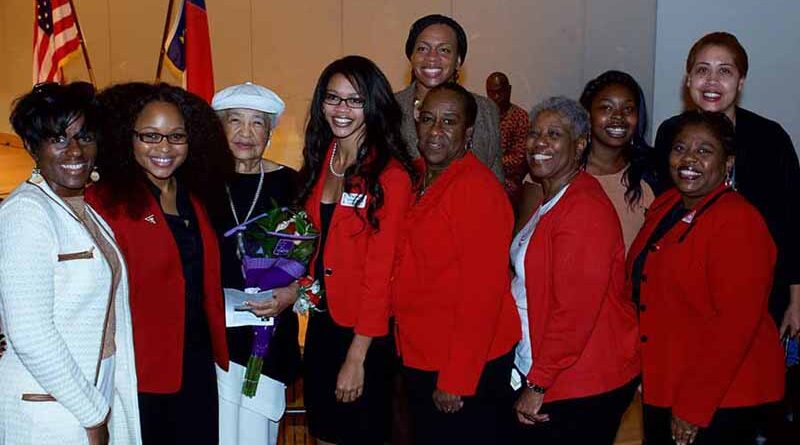Charlotte Trailblazer In Africana Studies Dies At 93
Bertha Maxwell-Roddey, Ph.D., a vanguard in the establishment of Africana Studies and a pivotal figure in advancing the educational and cultural life of African Americans in Charlotte, passed away on March 21 at the age of 93.
Dr. Maxwell-Roddey’s career was distinguished by her pioneering role as the founding director of the Africana Studies Department at the University of North Carolina at Charlotte, a position she assumed with a visionary zeal for education and community engagement. Joining the then-College of Human Development in 1970, she was among the first Black educators to break the color barrier in leadership, taking the helm of a predominantly white elementary school in Charlotte.
Her tenure at UNC Charlotte was marked by significant strides in academic programming and cultural understanding. In 1971, she led the formation of the Black Studies Program, laying the groundwork for what would evolve into the Africana Studies Department, a cornerstone for the university and a beacon for scholarly work on the African diaspora.
Dr. Maxwell-Roddey’s leadership extended beyond academia into the realm of national discourse on Black studies. She played a crucial role in the founding of the National Council for Black Studies, an organization that emerged as the scholarly extension of the Civil Rights Movement, dedicated to the formal study of the African World experience.
Her impact resonated with students and faculty alike. Vanessa Gallman, one of the early participants in the Black Studies Program, and later an editor of a collection of essays on its transformative role, reflects on the department’s influence on its alumni, attributing its success to Maxwell-Roddey’s pioneering efforts.
Sonya Ramsey, a professor of history at UNC Charlotte, has documented Maxwell-Roddey’s monumental contributions to the field and the university in her book, highlighting her role in the recruitment and retention of students and the development of programs that fostered a sense of inclusion and community service.
Beyond her academic achievements, Dr. Maxwell-Roddey’s legacy includes the co-founding of the Afro-American Cultural Center, alongside Professor Mary Harper. Their work addressed the erasure of African American heritage due to urban renewal, leading to the preservation of history and the establishment of the Harvey B. Gantt Center for African-American Arts + Culture.
Dr. Maxwell-Roddey’s efforts have been recognized with numerous awards, including the prestigious Order of the Long Leaf Pine. Her life’s work, characterized by her ability to lead with grace and determination, has been an inspiration to many, embodying the essence of a “modern-day race woman” dedicated to the progress of Black communities.
Among her many roles, Dr. Maxwell-Roddey was a revered member of the Delta Sigma Theta Sorority Inc., where she served in several national leadership positions and led initiatives with Habitat for Humanity, significantly contributing to housing needs in the United States, the Caribbean, and Africa.
The loss of Dr. Maxwell-Roddey is deeply felt by the UNC Charlotte community and beyond. Eddy Souffrant, chair of the Africana Studies Department, speaks to her enduring legacy, describing her as a titan in the field whose memory will inspire future generations.
Dr. Maxwell-Roddey will be remembered in a celebration of life at Friendship Missionary Baptist Church. Her journey from Seneca, South Carolina, to becoming a leading figure in education and civil rights is a testament to her indomitable spirit and enduring legacy.

